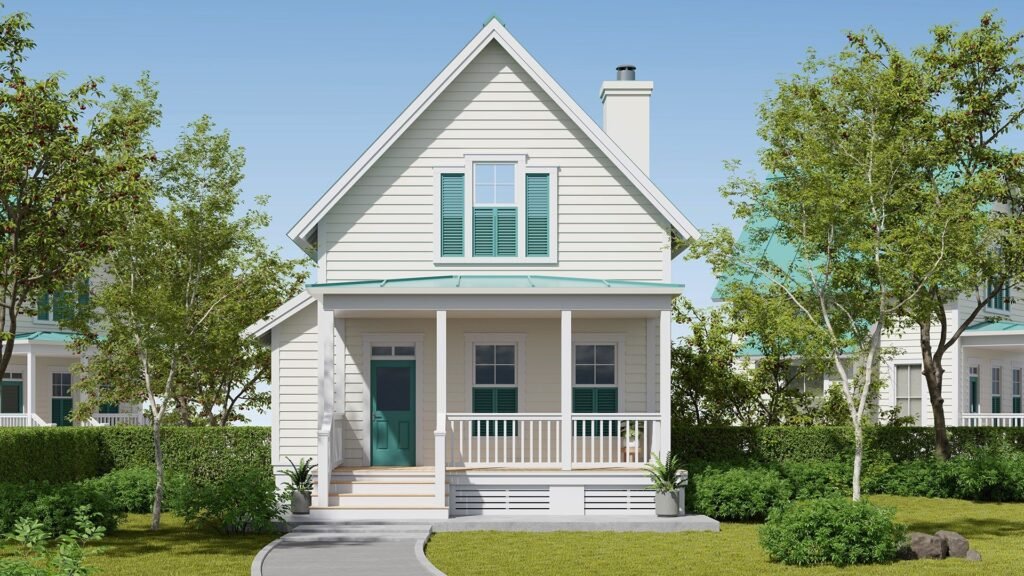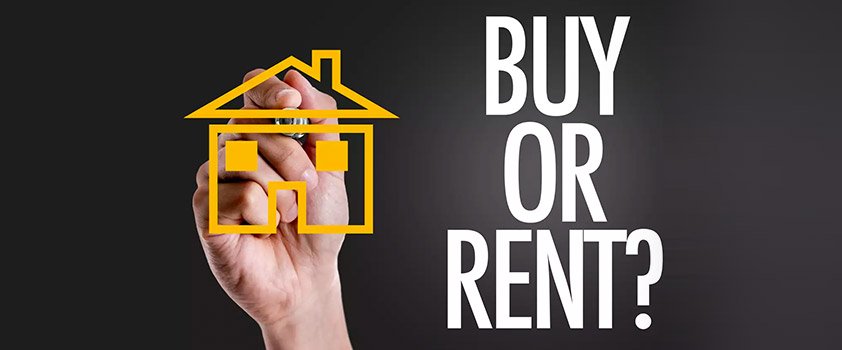When you’re trying to decide whether to rent or buy a home, the answer isn’t always clear-cut. It’s a big financial decision that depends on your goals, lifestyle, and finances. Some people benefit from the flexibility of renting, while others prefer the long-term investment of homeownership.
In this blog, we’ll break down the pros and cons of each option and help you figure out what’s right for you.
Why the Rent or Buy a Home Decision Matters
Choosing to rent or buy a home is about more than just cost—it’s about stability, freedom, responsibility, and your future. You need to look at your current situation and your goals over the next 5 to 10 years.
Let’s explore both sides to give you a clearer understanding.
Renting a Home: Pros and Cons
Pros of Renting
1. Flexibility
Renting gives you the freedom to move quickly. Whether it’s a job change, family need, or a change of scenery, you can usually relocate with less hassle.
2. Lower Upfront Costs
Renting typically requires just a security deposit and first month’s rent. No down payments, closing costs, or property taxes.
3. Fewer Responsibilities
As a renter, you don’t need to worry about maintenance, repairs, or landscaping—those are your landlord’s responsibilities.
4. Access to Amenities
Many rental communities offer pools, gyms, security, and other amenities that would cost more in a home you own.
Cons of Renting
1. No Equity
Monthly rent payments don’t build equity. You’re helping someone else pay off their investment, not your own.
2. Rising Rent
Landlords can raise rent when your lease expires. That unpredictability can be hard on your budget.
3. Limited Control
You can’t make permanent changes, remodel the space, or have full creative freedom over your living space.

Buying a Home: Pros and Cons
Pros of Buying
1. Building Equity
Every mortgage payment builds ownership in your home. Over time, it becomes a valuable asset that can grow with market appreciation.
2. Fixed Monthly Costs
If you choose a fixed-rate mortgage, your principal and interest won’t change, offering more predictable budgeting.
3. Creative Freedom
You can paint, remodel, renovate, and design your space as you wish. It’s completely your own.
4. Tax Benefits
Homeowners often qualify for mortgage interest deductions, property tax deductions, and other tax advantages.
Cons of Buying
1. High Upfront Costs
A down payment, closing costs, and fees can add up fast. You also need money for inspections, appraisals, and moving.
2. Maintenance Responsibility
You’re responsible for repairs, upgrades, lawn care, and more. This requires time, money, and effort.
3. Less Flexibility
It can take time to sell a home if you need to move quickly. You may not have the mobility renting offers.
Factors to Consider Before You Decide
Location and Market Trends
In some areas, rent is much cheaper than mortgage payments. In others, owning is more cost-effective over time. Research the local market to understand what makes more sense for your situation.
Financial Health
Do you have enough for a down payment? Can you cover unexpected repairs? Renting might be a better option if your savings are limited.
Long-Term Plans
If you plan to stay in the same city for more than five years, buying may save you money in the long run.
Job Stability
Buying is a bigger commitment. If your job is unstable or may require relocation, renting offers less risk.
Rent or Buy a Home: A Cost Comparison
Let’s break down an example of monthly costs:
| Expense Type | Renting | Buying (Mortgage) |
|---|---|---|
| Monthly Payment | $1,800 (Rent) | $1,800 (Loan Payment) |
| Upfront Cost | $3,600 (2 months rent) | $45,000 (down payment) |
| Property Taxes | $0 | $300/month |
| Maintenance | $0 | $150/month |
| Insurance | Renters Insurance ($25) | Homeowners Insurance ($100) |
Buying may cost more upfront but builds equity over time.
Who Should Rent?
- You’re new to an area and not ready to commit.
- You don’t have savings for a down payment.
- Your income is uncertain or fluctuates.
- You value flexibility and low maintenance.
Who Should Buy?
- You’re financially stable and can afford upfront costs.
- You plan to stay in one location for 5+ years.
- You want to invest in real estate and build equity.
- You want the freedom to customise your space.
Conclusion: Rent or Buy a Home?
There’s no one-size-fits-all answer to whether you should rent or buy a home. Renting is great for flexibility and low commitment. Buying is ideal for long-term wealth building and stability.
The best decision is the one that fits your lifestyle, finances, and goals.
Read More The Real Estate Commission: How Much Are Agent Fees
FAQs
Renting costs less upfront, but buying builds equity and can be a long-term investment.
You should have stable income, good credit, and enough savings for a down payment and closing costs.
Yes. Renting is ideal if you plan to move within a few years or are unsure about settling down.







